2-Day Certification Training: Treating Anxiety Disorders in Children & Adolescents – PAUL FOXMAN (Digital Seminar)
$439.00 $132.00
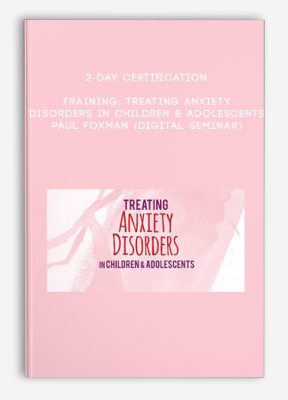
2-Day Certification Training: Treating Anxiety Disorders in Children & Adolescents – PAUL FOXMAN (Digital Seminar)
Sale Page
Archive Page
Get 2-Day Certification Training: Treating Anxiety Disorders in Children & Adolescents – PAUL FOXMAN (Digital Seminar) on Salaedu.com
Description:
Divorce, family breakdown, violence in society and the media, has produced a “shell shocked” generation of kids suffering from anxiety!
Purchase this 2-day recording to join anxiety expert and author Dr. Paul Foxman, who will demonstrate how you can “connect” with anxious children and inspire them to practice new self-regulation skills. You will learn how to help parents (“bulldozers”, “helicopters” and “snowplows”) and schools to gain confidence, gratification, and success in helping their most anxious kids.
To increase your effectiveness with the various manifestations of child anxiety, Dr. Foxman will address each of the following disorders with case examples and clinical vignettes:
- Separation Anxiety Disorder
- Panic Disorder
- Generalized Anxiety Disorder
- Obsessive-compulsive disorders (including skin picking and hair-pulling)
- Social Anxiety Disorder/Selective Mutism
- Specific phobias
- Trauma- and Stressor-related disorders
Emphasis will be on creative psychotherapy involving insight-oriented, cognitive-behavioral, biological, mindfulness, and family systems interventions.
Outline:
DAY ONE
Sources of Anxiety and Treatment Overview
- What research tells us about therapy effectiveness applied to children
- How anxiety develops in children: the “Three Ingredients Framework”
- Biological sensitivity
- Anxiety personality style
- Stress overload
- Treatment goals, strategies, and recommendations
- The baseball analogy for behavior change and symptom reduction
- Behavioral health recommendations
Interventions: Stress Management and Anxiety-Regulation Skills
- The 1st intervention: “3-S” process for stress management
- Symptoms
- Sources
- Solutions
- The 2nd intervention: anxiety regulation skills
- ”Relaxation Response”
- Breathing practices
- Mindfulness practices for children
- Flow activities
- Yoga games
- Martial arts
- ”Baby Buddhas” meditation for preschoolers
- Other approaches to self-regulation
School Recommendations, Medication, DSM-5® Classification, and Interventions for Separation Anxiety Disorder
- Recommendations for schools
- Pros and cons of medication
- DSM-5® anxiety disorders: current updates
- Separation anxiety
- Normal separation process
- Therapeutic exposure
- ”Helicopter”, “bulldozer” and “snowplow” parenting
- Strategies to help parents let go
Interventions for Generalized Anxiety and Panic Disorder
- Generalized anxiety
- Why we worry
- Introducing language for new thought patterns
- 9 strategies for replacing worry with alternative cognitive habits
- Panic disorder
- Diagnosis and treatment success rate
- Agoraphobia component
- Treatment metaphors
- ”Floating Technique”
- ”LifeSkills” Self Help Program
DAY TWO
Interventions for Obsessive-Compulsive Disorders
- Obsessive-compulsive disorders: expanded classification
- Relationship between obsessions and compulsions
- Trichotillomania (hair pulling)
- Excoriation (skin picking)
- Body dysmorphia
- PANDAS (medically induced OCD: Pediatric Autoimmune Disorder Associated with Streptococcus Infection)
Interventions for Social Anxiety Disorder and Selective Mutism
- Social Anxiety Disorder
- Selective mutism
- Self-esteem issues and treatment
- Social communication skills
- Group therapy
Interventions for Phobias and Stressor- and Trauma-Related Disorders
- Specific Phobias
- Diagnosis and examples
- Virtual reality exposure
- Stressor- and Trauma-related disorders
- Expanded diagnostic classification
- Attachment disorders
- Adjustment disorders
- Acute stress disorders
- Trauma-related disorders
- New frontiers in trauma treatment
Wrap Up
- Therapy progress measures
- Case consultations
NLP online course
So what is NLP?
Firstly, NLP stands for Neuro-Linguistic Programming. Secondly neuro refers to your neurology;
Thirdly linguistic refers to language however, programming refers to how that neural language functions.
As a result,In other words, learning NLP is like learning the language of your own mind!
Moreover, NLP is the study of excellent communication–both with yourself, and with others.
It was developed by modeling excellent communicators and therapists who got results with their clients.
NLP is a set of tools and techniques, but it is so much more than that.
In conclusion, It is an attitude and a methodology of knowing how to achieve your goals and get results.
More Course: NLP – HYPNOSIS – PHILOSOPHY
Outstanding Course:Training New Trances from John Overdurf
1 review for 2-Day Certification Training: Treating Anxiety Disorders in Children & Adolescents – PAUL FOXMAN (Digital Seminar)
Add a review Cancel reply
Related products
HYPNOSIS - NLP Courses
HYPNOSIS - NLP Courses
Christina Hall – The Paradoxical Nature of Change – Video Book
HYPNOSIS - NLP Courses
Tom O’Connor NLP – Task Decomposition The “Magic Power of Goal Getters”
HYPNOSIS - NLP Courses



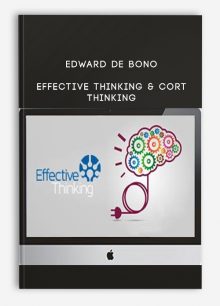
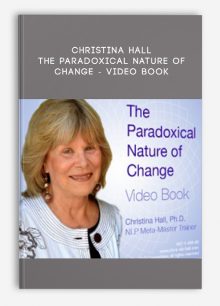
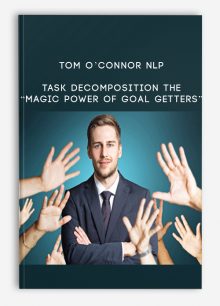
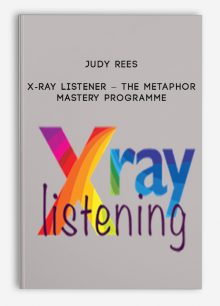


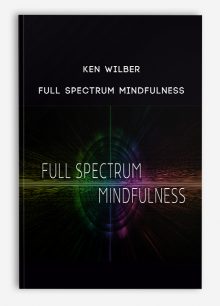
king –
We encourage you to check Content Proof carefully before paying.
“Excepted” these contents: “Online coaching, Software, Facebook group, Skype and Email support from Author.”
If you have enough money and feel good. We encourage you to buy this product from the original Author to get full other “Excepted” contents from them.
Thank you!